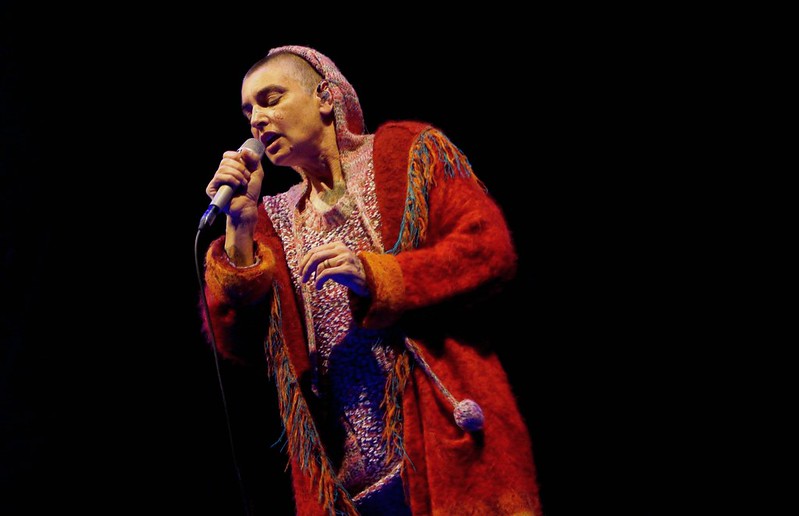
The influential and controversial Irish singer-songwriter first received international success with her 1987 debut The Lion and the Cobra, which sold over 2.5 million copies worldwide. Her 1990 follow-up, I Do Not Want What I Haven’t Got was even more massive, selling over 7 million worldwide, and featured her mega-hit rendition of Prince’s “Nothing Compare To You”. But her most important impact goes beyond commercial success.
Sinéad established herself as an uncompromising figure who spoke up for her beliefs, despite the potential backlash. For example, in 1990 she refused to perform if the United States national anthem was played before her concerts because she viewed the American recording industry as racist. Also in 1991, she refused to attend the 33rd Annual Grammy Awards and declined her award for Best Alternative Music Performance. In connection with these actions, she wrote an open letter to the Recording Academy scathingly critiquing the industry for promoting materialistic values over artistic merit. In a 1991 NME interview, she stated “I don’t do anything in order to cause trouble. It just so happens that what I do naturally causes trouble. I’m proud to be a troublemaker.”
Her most notable and important instance of causing trouble was when she performed a cappella reworking of Bob Marley’s “War” during an October 3, 1992 appearance on Saturday Night Live. Her rendition not only featured altered lyrics referencing child abuse, she also concluded by tearing up a photo of Pope John Paul II in protest of the Roman Catholic Church.
In her 2021 memoir Rememberings, she addressed the backlash and expressed that she had no regrets, saying: “I am a protest singer. I just had stuff to get off my chest. I had no desire for fame.”
As a protest singer, she recorded and composed several socially conscious tunes. One notable highlight in her catalog is “Black Boys On Moped” from I Do Not Want What I Haven’t Got. The tune references the tragic incident of a young innocent black man named Nicholas Bramble, who was killed by the police. The lyrics are also an indictment of then British Prime Minister Margret Thatcher.
One notable musician who was influenced by Sinéad and frequently covered “Black Boys On Moped” was Phoebe Bridgers. Bridgers also wrote O’Connor’s obituary for Rolling Stone, where she described both Sinéad’s impact and unfair treatment: “Whether it’s about the famine or the Catholic Church or Margaret Thatcher, history is on her side in a way it wasn’t at the time. People and the media were not nice to her. She was ostracized for so many things, and so many people thought she was a grumpy person. It’s abuse to be told to shut up and sing. It’s abuse to be worshipped and then hated. It’s such a sad and heartbreaking story. Behind every famous woman are tons and tons of rape and death threats. She made a huge sacrifice for women and for musicians and for people who believe in things. She was so not rewarded for it.”
To further appreciate Sinéad the protest singer check out the list of 15 Protest Songs of Sinéad O’Connor.